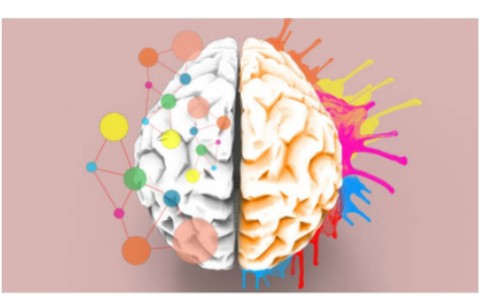This is a topic that doesn’t receive much attention, even among language enthusiasts and polyglots. Perhaps, as passionate language learners, we tend to overlook it! There is a unique pleasure in the process of acquiring and enhancing skills in a foreign language.
However, could this endeavor have a positive impact on one’s mental health?
It seems that engaging in the gradual process of learning a language can indeed contribute to enhanced mental well-being over time.
How is this?
In the following article, we’ll explore the four crucial aspects that contribute to this phenomenon, so keep reading if you’re interested in discovering more.
Firstly, let’s begin with a small note of caution.
Learning a language can be challenging, extremely so at times. There will be periods of progress, and there will be times when you seem to be regressing or making lateral moves for months or even years. The desire to give up will undoubtedly arise on numerous occasions.Just as our bodies thrive with physical exercise, our minds flourish through engaged learning and effective communication, embodying the True You Psych philosophy which emphasizes a holistic approach to mental health, nurturing every aspect of our being.
However, here’s the key: this difficulty is what makes language learning truly beneficial for mental health and well-being.
It’s a challenge for the brain.
Our brains are inherently designed to tackle intricate problems and address daily challenges. Consider the primal concerns of securing the next meal or finding shelter in a harsh environment—issues hardwired from our cave-dwelling ancestors.
Communication is a crucial component of this cognitive function. The inability to communicate with a neighbor can lead to problems and misunderstandings, posing a potential threat to our survival. Our brains are finely tuned to address and resolve such challenges.
This leads us to the first point.
Language learning gives the brain a task to focus on
A contented mind finds its fulfillment in engagement—it’s what the mind is crafted for. While immersing ourselves in the learning process, we actively involve our minds with the subject matter, whether it’s new vocabulary, grammar, reading articles, or watching content in the target language.
As mentioned earlier, the brain is ideally evolved for this type of cognitive activity. Similar to a rewarding workout at the gym, a language learning session can leave your mind feeling more focused and energized, aligning with its inherent design.
Taking this analogy further, one can draw parallels with the positive impact of exercise on mental health. Although the need to escape wild predators is no longer prevalent, our brains still benefit from activities that echo the evolutionary design, such as a brisk run, contributing to overall mental well-being.
Language learning provides a healthy escape
This aspect is arguably the most crucial. Actively participating in language learning allows for a temporary escape from the demands of the external world.
This effect is amplified when you set aside your phone, power down all electronic devices, and opt for the simplicity of an old-fashioned textbook.
Yes, they still exist!
Engaging in language learning takes you away from the daily grind—emails, tasks, phone calls, notifications—and immerses you in a vibrant and captivating learning environment.
Allocating 30 minutes, an hour, or even two to the process, if possible, offers the additional advantage of disconnecting from the usual stresses and pressures of life. This dedicated time allows your mind a respite.
- One-on-one or group lessons (in person)
- Hiring an online language tutor for personalized guidance and feedback
- Creating or reviewing vocabulary flashcards
- Getting lost in a good book in your target language
- Reading a magazine or newspaper in your target language
- Engaging in one-to-one language classes, where you receive personalized attention and tailored instruction to enhance your language skills.
- Even consuming the news, despite its occasional gloominess, can be an intriguing experience in another language, providing a wholly different perspective.
Language learning improves confidence

Through consistent learning and practice, confidence emerges as the linchpin. While knowledge is undoubtedly crucial, significant progress can be achieved by exuding (or even simulating) confidence.
Gaining confidence in a foreign language fosters a sense of fulfillment. This newfound confidence and satisfaction extend their influence into every facet of your life.
When coupled with regular practice, this forms a virtuous cycle of continuous improvement and growing confidence, propelling you to higher levels. Confidence and satisfaction complement each other seamlessly.
Language learning often instills a sense that you can conquer anything. I’ve personally experienced this after grappling with challenging languages!
Language learning creates connections with people
As the saying goes, no person is an island—human beings are inherently social creatures. Socializing generally brings about feelings of joy and happiness for most individuals.
Fortuitously, language learning is a social endeavor. While there are apps and various self-study methods available, the inevitable step involves engaging with real people. This could mean participating in a class and conversing with classmates, taking private lessons with a teacher, or more informally, chatting with friends or family in the language. Other avenues include using the language while on holiday or mingling with people in social settings like bars or events. The possibilities for connecting with others through language learning are endless.
Who knows, you might even meet the love of your life by conversing in another language!
In summary, these are four ways in which language learning can contribute to enhancing mental health. Challenge yourself, try something new today. Dedicate as much time as possible, disconnect from electronic devices, and immerse yourself mindfully in learning a specific aspect of your chosen language.
Take note of how you feel afterward. Transform this into a habit, and you’ll be well on your way. Best of luck with your language learning endeavors!


 Home
Home









